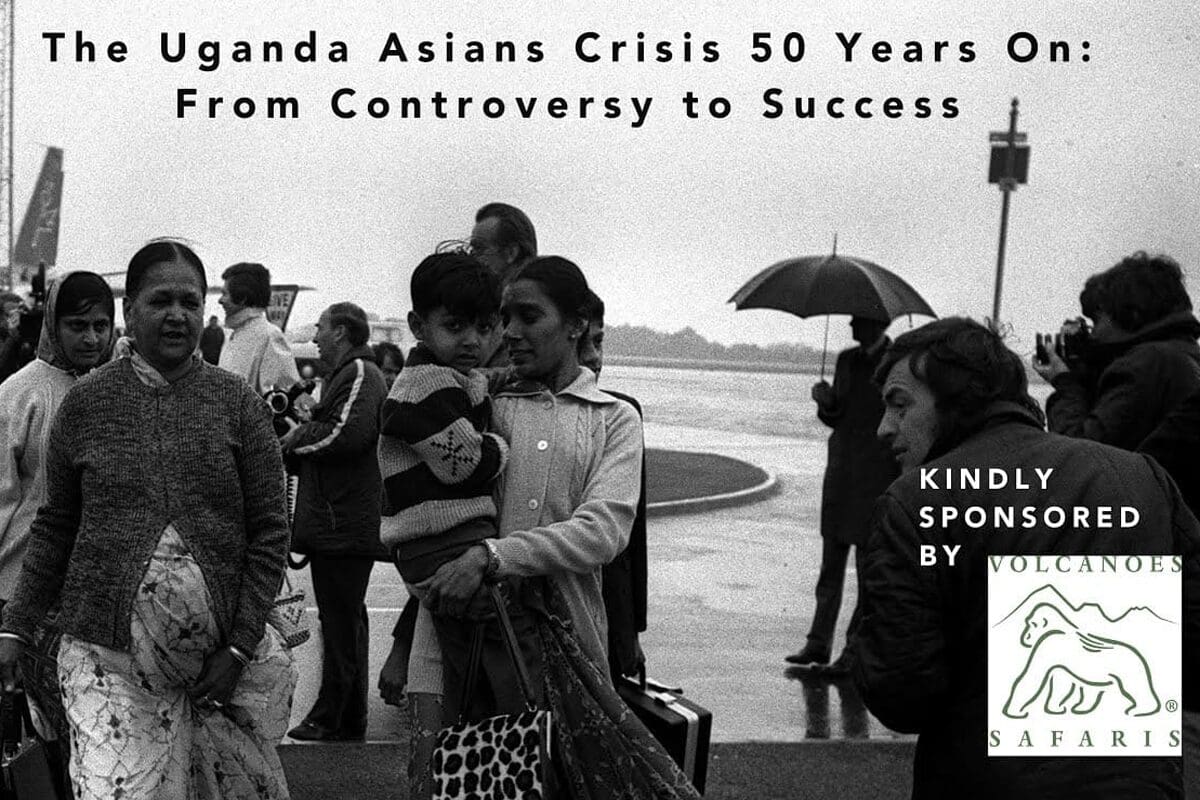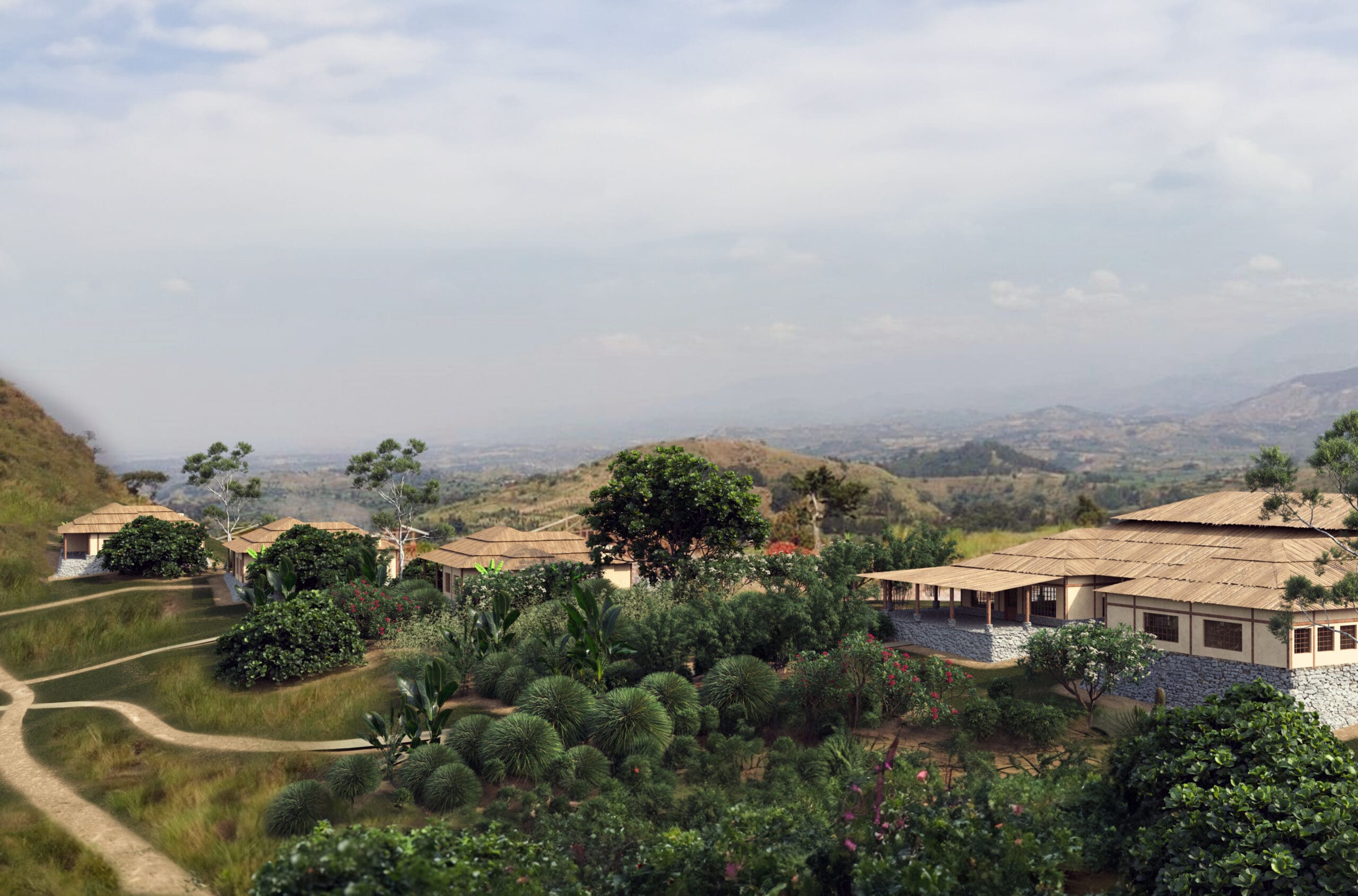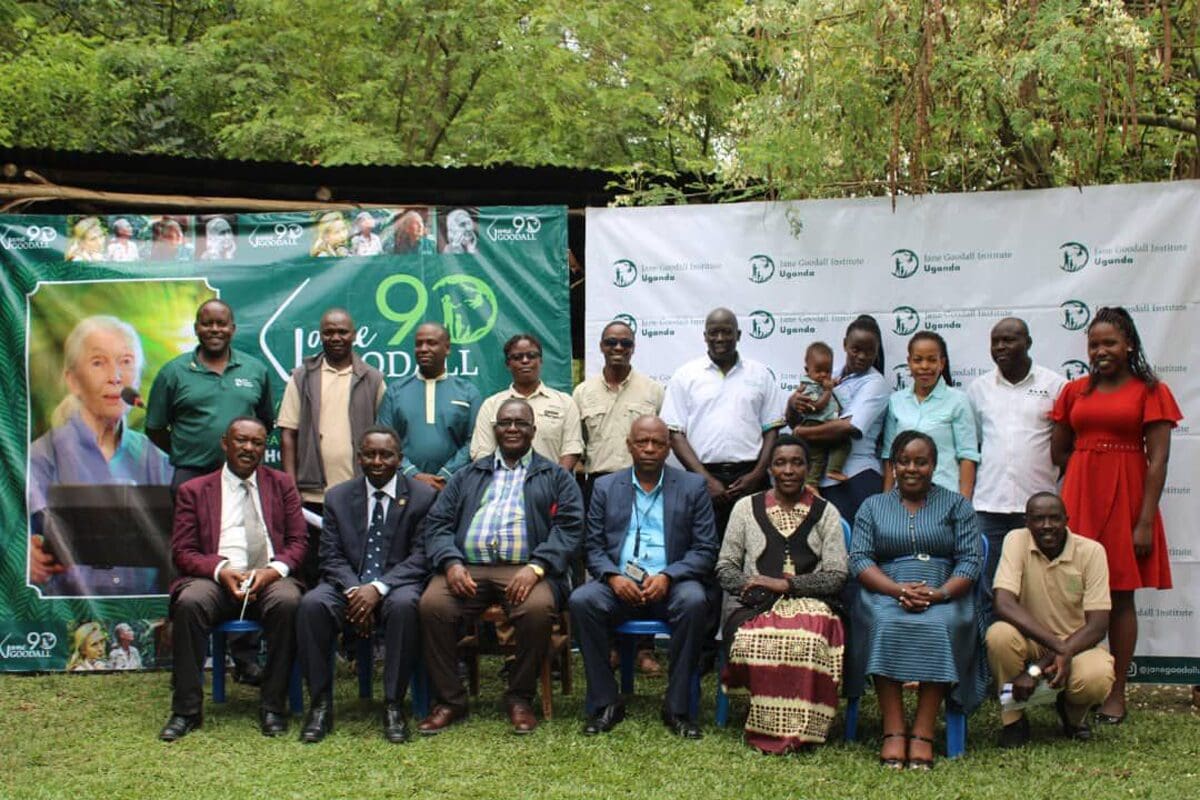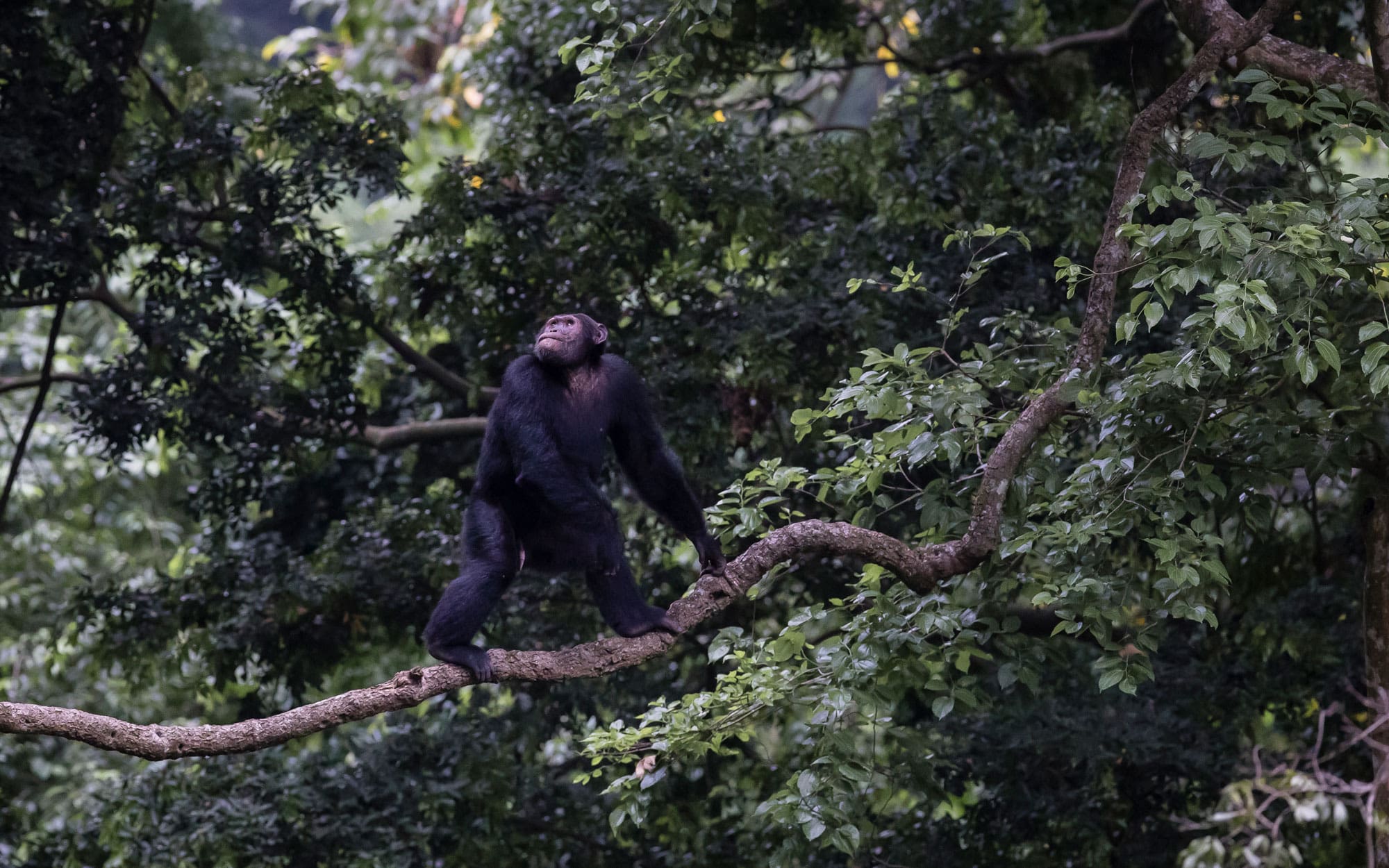At the Iby'Iwacu Cultural Village near Kinigi, Rwanda, 12 young men wearing blue loincloths and brightly colored beaded sashes leap into the air and swing their heads up and down, their long blonde headdresses whipping in wide arcs. Landing on the ground in unison, they cry out and stamp their feet, causing the ground to tremble around them. A spear in their right hands and a shield in their lefts, the warrior dancers rush forward as if to attack and then, just as quickly, stop, and leap sideways into the air. The Intore dance, also known as the “Dance of Heroes,” recalls a time when Rwandan warriors of all ethnic backgrounds—Hutu, Tutsi, and Twa—returned home to tell the king of their victory on the battlefield through dance, song, and drumming.
Today, with the backdrop of the fluted green Sabyinyo volcano and dramatic Virunga sky, the spinning, flying dancers are a photographer’s dream. Smiling before the visitors, the performers proudly explain the history of the dance, and what it means to them to be able to practice this ancient art, a tradition that was almost forgotten during the years of upheaval, war, and genocide following the downfall of the Rwandan monarchy in the mid-20th century.
It’s hard to believe that just a few years ago, most of these men made a living poaching wildlife in Volcanoes National Park. In this poverty-stricken part of Africa harvesting and selling bush meat, while dangerous and illegal, is a way to put food on the table and generate income for necessities like clothing and cooking fuel. Potentially thousands of antelope and other small game—the poachers’ main targets—are killed each year. Dozens of mountain gorillas, usually inexperienced youngsters, have also been injured and even killed by these snares over the years.
Six years ago, Rwandan Edwin Sabuhoro, a former Volcanoes National Park ranger who had come into direct conflict with poachers while on the job, decided that the best thing he could do to reduce the poaching was to provide the hunters with jobs that would allow them to earn decent, dependable salaries. Taking it a step further, Sabuhoro thought it would be even better to give poachers employment that made them stakeholders in the conservation of mountain gorillas. At the time, there were very few well-organized cultural attractions in Rwanda. Most tourists visiting the region spent just a day or two trekking gorillas, and very few of people living near the park boundaries profited directly from the multi-million dollar tourism industry.
In 2006, Sabuhoro opened the Iby'Iwacu Cultural village, a living history tourism site that employs a rotating staff of several hundred former poachers and their family members as dancers, musicians, storytellers and cultural interpreters. When tourists stop by for a visit and pay the $35 admission fee, 40 percent goes directly to the employees and 60 percent goes into a general fund to support community projects.
Of all of the cultural tourism projects I have visited in Rwanda (including virtually all offerings around Volcanoes National Park), Iby'Iwacu is the most professional and fun. The dancing and drumming is spectacular and the staff members are real characters. My favorite performer is Barora Leomoloy, a Batwa pygmy man who confessed to having poached some 200 animals from the park before being employed by the village. During one of my visits to the village, he taught me how to shoot a bow and arrow and laughed with shock as I somehow managed to hit the target despite wearing a skirt and heels. The village also showcases a traditional healer, a blacksmith, women who demonstrate weaving and sorghum grinding and local historians who tell stories of Rwanda’s 600 year-old monarchy inside a replica of a traditional king’s palace.
While poaching is still an ongoing problem in Volcanoes National Park, the staff members of Iby'Iwacu firmly believe that cultural tourism can uplift human beings and save animal lives. I encourage anyone planning a trip to Volcanoes National Park to spend the afternoon after a trek or plan a rest day to visit the village. Not only will you learn about the human aspect of the Virunga region, you’ll be making a direct contribution to the conservation of wildlife and Rwandan cultural traditions. All spoke of how their lives had improved since joining in Sabuhoro's tourism initiatives and how they now understood the importance of protecting "their park."
Since 2006, the park has seen a 40 percent decrease in poaching and many of locals have seen their lives improve greatly, although Sabuhoro admits, there are still many problems to be addressed. "The challenge will always be there," he says, "but I think if we can empower the communities and inspire the younger generation,we will have come a long way."












